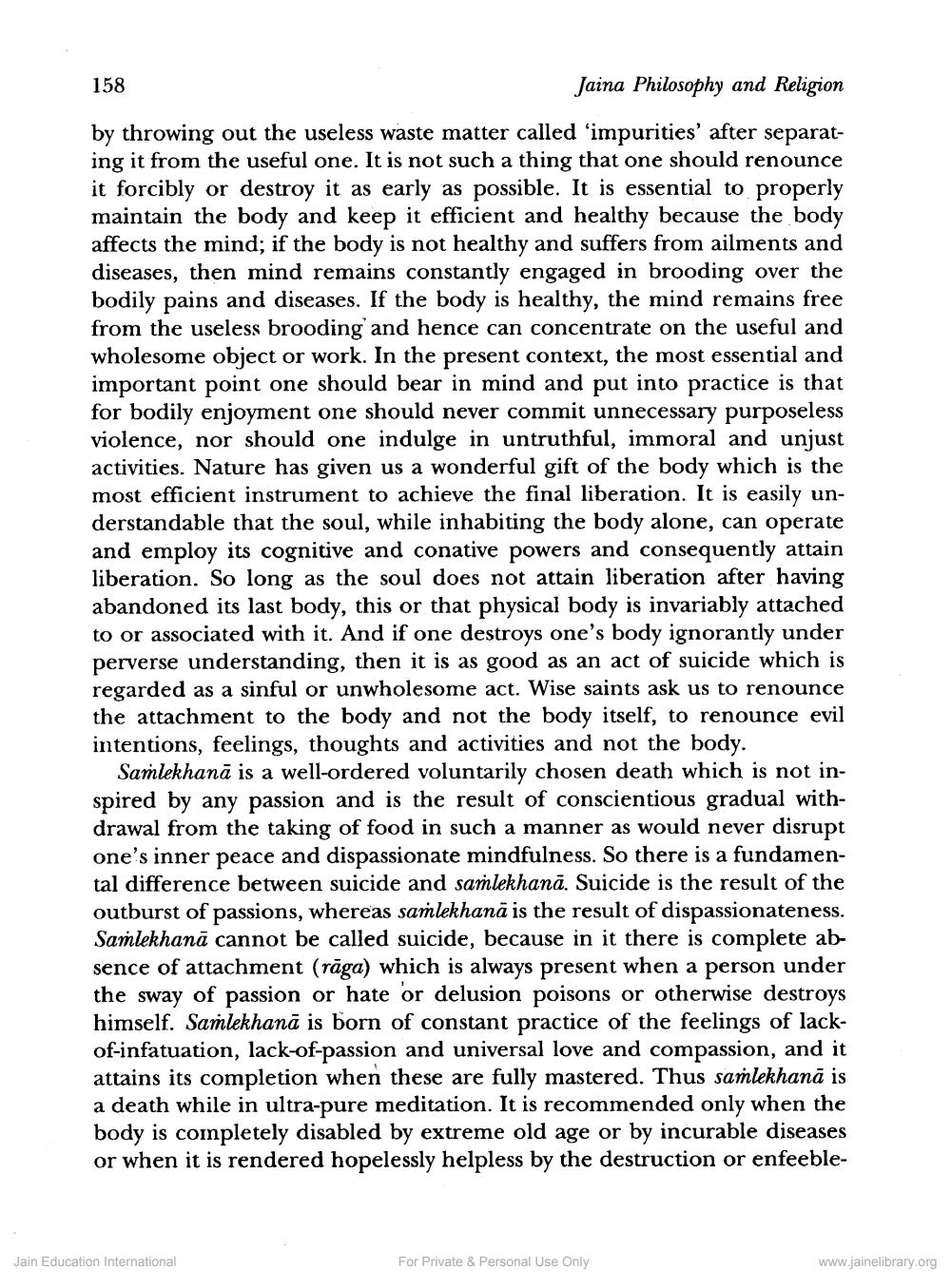________________
158
Jaina Philosophy and Religion
by throwing out the useless waste matter called 'impurities' after separating it from the useful one. It is not such a thing that one should renounce it forcibly or destroy it as early as possible. It is essential to properly maintain the body and keep it efficient and healthy because the body affects the mind; if the body is not healthy and suffers from ailments and diseases, then mind remains constantly engaged in brooding over the bodily pains and diseases. If the body is healthy, the mind remains free from the useless brooding' and hence can concentrate on the useful and wholesome object or work. In the present context, the most essential and important point one should bear in mind and put into practice is that for bodily enjoyment one should never commit unnecessary purposeless violence, nor should one indulge in untruthful, immoral and unjust activities. Nature has given us a wonderful gift of the body which is the most efficient instrument to achieve the final liberation. It is easily understandable that the soul, while inhabiting the body alone, can operate and employ its cognitive and conative powers and consequently attain liberation. So long as the soul does not attain liberation after having abandoned its last body, this or that physical body is invariably attached to or associated with it. And if one destroys one's body ignorantly under perverse understanding, then it is as good as an act of suicide which is regarded as a sinful or unwholesome act. Wise saints ask us to renounce the attachment to the body and not the body itself, to renounce evil intentions, feelings, thoughts and activities and not the body.
Samlekhanā is a well-ordered voluntarily chosen death which is not inspired by any passion and is the result of conscientious gradual withdrawal from the taking of food in such a manner as would never disrupt one's inner peace and dispassionate mindfulness. So there is a fundamental difference between suicide and samlekhana. Suicide is the result of the outburst of passions, whereas samlekhanā is the result of dispassionateness. Samlekhana cannot be called suicide, because in it there is complete absence of attachment (rāga) which is always present when a person under the sway of passion or hate or delusion poisons or otherwise destroys himself. Samlekhanā is born of constant practice of the feelings of lackof-infatuation, lack-of-passion and universal love and compassion, and it attains its completion when these are fully mastered. Thus samlekhana is a death while in ultra-pure meditation. It is recommended only when the body is completely disabled by extreme old age or by incurable diseases or when it is rendered hopelessly helpless by the destruction or enfeeble
Jain Education International
For Private & Personal Use Only
www.jainelibrary.org




